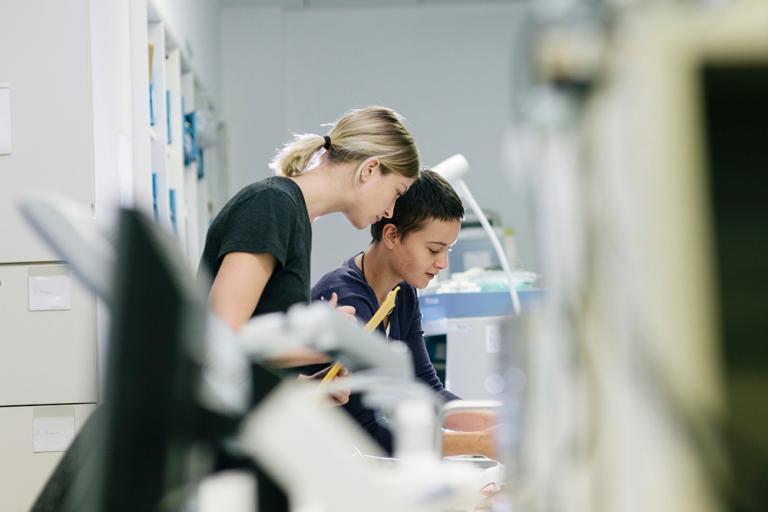LAB-Net helps POS-ARI-ER achieve its goals
Ecraid's laboratory network LAB-Net has been of great value in taking ECRAID-Base’s Perpetual Observational Studies (POS) off the ground. It has been supporting POS-ARI-ER during the entire site selection process and will continue to offer its services to the study team.
POS-ARI-ER, a study on Acute Respiratory Infections in the Emergency Room, is the third to begin enrolling patients. Led by the University of Oxford in collaboration with the Amsterdam University Medical Center, it aims to:
1. describe variations in routinely used diagnostic approaches and clinical management in adult patients,
2. describe clinical outcomes in adults with community acquired ARI in acute hospital settings in Europe,
3. characterise the adult patient population with ARI presenting to acute hospital settings in Europe,
4. describe the aetiology of ARI in adults presenting to acute hospital settings in Europe, and
5. assess the association between clinical outcomes and diagnostic or treatment related variables, for different aetiologies of community acquired ARI in adults presenting to hospital across Europe.
LAB-Net’s role
LAB-Net maintains an extensive pan-European network of microbiology laboratories coordinated by the Laboratory of Medical Microbiology (LMM) at the University of Antwerp. It was selected for a great deal of tasks within ECRAID-Base because LAB-Net's coordinated approach ensures increased efficiency while maintaining high quality.
LAB-Net supported POS-ARI-ER's operational team throughout the entire site selection process of 40 sites across Europe. A feasibility questionnaire to assess the eligibility of the local laboratories to participate in this study was developed and distributed. In addition, a specimen collection and management manual was developed by LAB-Net and detailed instructions were provided to selected sites, as well as materials to collect, process and store the samples.

In April, LAB-Net already provided sampling materials, and a sample collection and management manual to 5 activated sites in the United Kingdom. In addition, it will provide specific training to all sites on correct sample collection and management. Moreover, LAB-Net developed a SOP for standardised and harmonized lab-based detection of SARS-CoV-2 and other respiratory viruses and bacteria to be applied to the collected specimens.
Samples will be shipped periodically to LMM for long term storage and further retrospective analysis at the central laboratory in Antwerp.
Practical setup of POS-ARI-ER
The patient population of POS-ARI-ER includes adults (≥ 18 years old) that enter the ER with clinical suspicion of a new episode of an acute respiratory tract infection (with onset in the last 10 days presenting to an ER or secondary care setting). Patients transferred from another hospital or admitted to the hospital for >2 days at time of enrolment or patients previously enrolled in the POS-ARI-ER study will be excluded from participation.
A subset of participants (approximately 25% of 11 500 over the course of over 3.5 years) will have a single combined nose throat swab (NTS) obtained at baseline (within 24 hours of enrolment), for pathogen detection by molecular methods.
About ECRAID-Base
The ECRAID-Base project aims to establish a pan-European, multidisciplinary clinical research network for EID that is globally linked, sustainable and has a single point of access – Ecraid. The network serves as a platform for European clinical research preparedness and response to emerging infectious diseases (EID). At the heart of ECRAID-Base are six Perpetual Observational Studies. LAB-Net is involved in all these studies and continuously offers its expertise and support.
ECRAID-Base is a collaboration of 19 organisations based in nine European countries and has received funding from the European Union’s Horizon 2020 research and innovation programme.